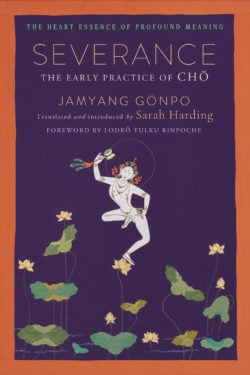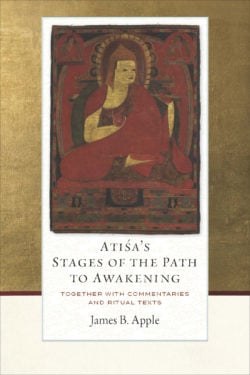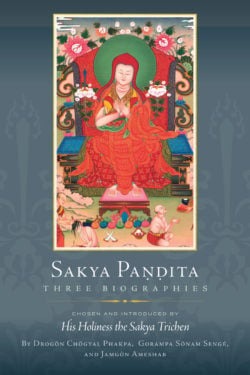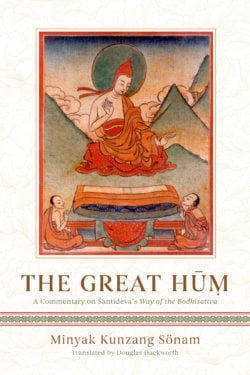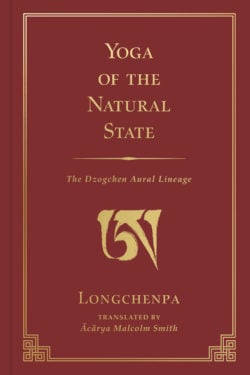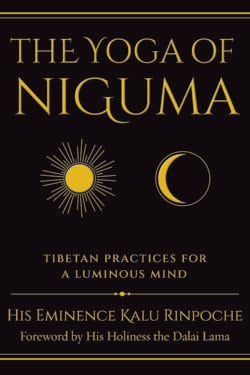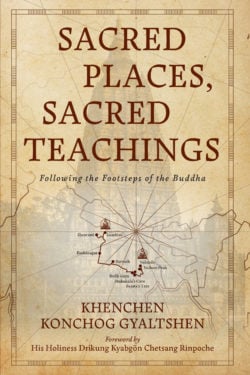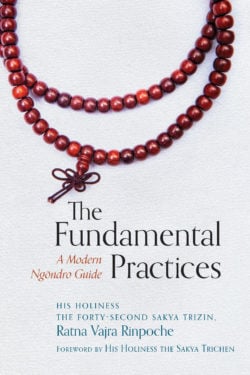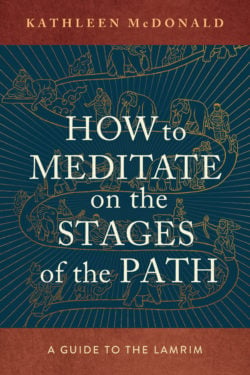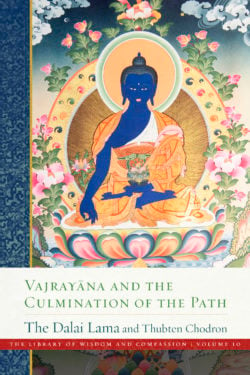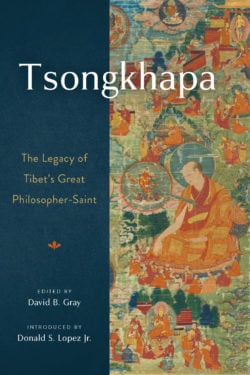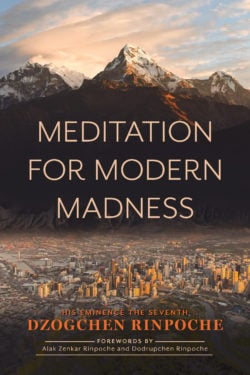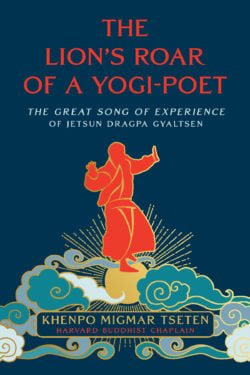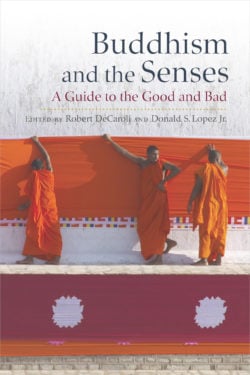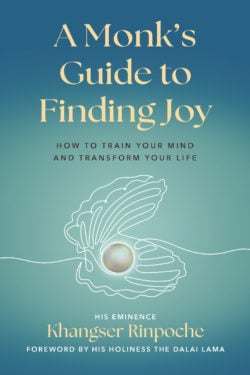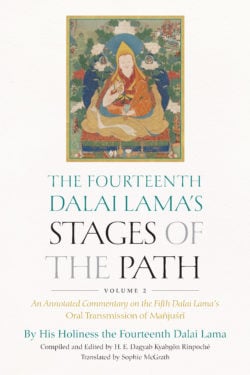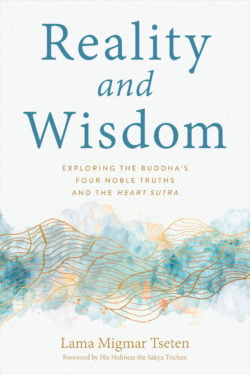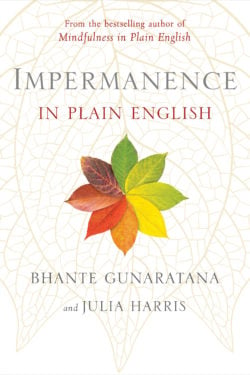Dafna Zahavi Yachin is a director, producer, and writer of award-winning documentaries, broadcast series, national commercials, educational programs, and multimedia campaigns. She has been instrumental in creating lasting formats for projects airing on CBS, ABC, NBC, CNN, Discovery, History, and SyFy. Her first Indie Feature Documentary, Digital Dharma, was Oscar qualified in 2012. Dafna has focused her documentary and online initiatives in the humanities, justice, and women’s rights arenas. She holds a BA in rhetoric and communications, and a BA in international political science from the University of Pittsburgh. Candid and documentary photography has been her avocation since she could hold a Polaroid.
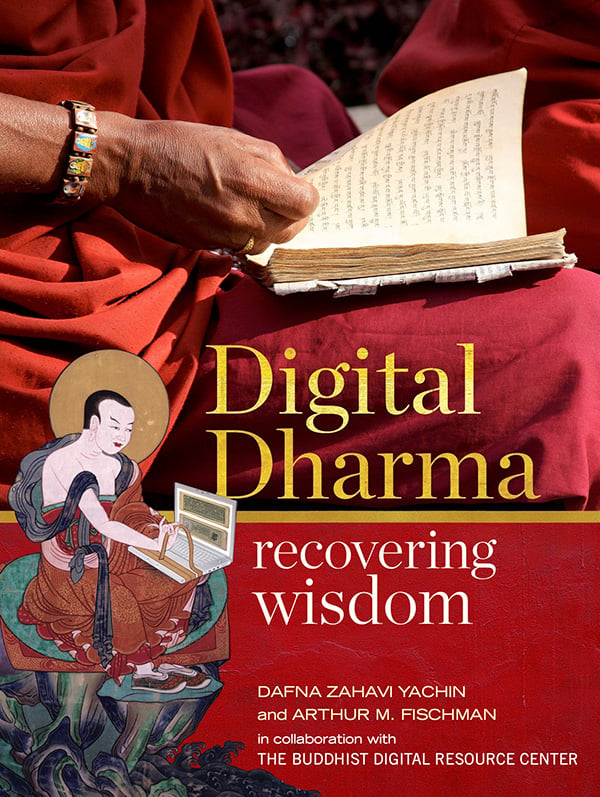
“Digital Dharma offers a delightful opportunity to rejoice in the unparalleled contribution of Gene Smith in helping to preserve, digitize, and make available to scholars and students worldwide tens of thousands of Tibetan texts—making it possible to literally have an entire library of Tibetan texts on one’s computer or a tablet. Gene’s work in Delhi on behalf of the Library of Congress, his travels to different parts of India, Nepal, Bhutan, and Tibet, so poignantly captured in this beautiful volume, bring home a powerful point—that with will and dedication a single person can make so much difference. I, for one, will treasure this book so that my deep gratitude to Gene always remains strong and vibrant.” —Thupten Jinpa, editor of The Library of Tibetan Classics and author of Tsongkhapa: A Buddha in the Land of Snows
“Gene Smith collected Tibetan texts for so many years, from India and other countries. As he gave permission to many universities to check and study the texts he collected, he offered so much wisdom to the world. And by giving texts to high lamas, monasteries and others he knew, he helped many people open the eye of wisdom–Dharma wisdom, not worldly wisdom. Furthermore, his nature was very kind, good-hearted, and I wish he could have lived forever.” —Lama Zopa Rinpoche
“Digital Dharma is a beautiful and moving tribute to a life that was well lived and that enhanced the lives of others. Like so many, I was grateful for Gene’s generosity, in the PL 480 volumes with their incredible introductions, which made possible my own first studies in Tibetan Buddhism, and later for his encouragement and support in publishing my doctoral thesis during his brief time at Wisdom Publications. His spirit continues in the ongoing work of the Buddhist Digital Resource Center, and I like to think that we are still connected in some way in its close relationship with the Endangered Archives Programme. And of course there is so much more to Gene’s great life story, which is so well told in this book.” —Sam van Schaik, head of the Endangered Archives Programme, the British Library
“It can be safely said that, after His Holiness the Dalai Lama, the person most responsible for the serious study of Tibetan Buddhism in America is E. Gene Smith. I first met Gene in India in 1978; the photos here from the Delhi days bring back many memories. For those lucky few who knew Gene and those lucky many who have benefited from his work, the images and words in this beautiful book convey much of the spirit of this remarkable man.” —Donald S. Lopez, Arthur E. Link Distinguished University Professor of Buddhist and Tibetan Studies and Arthur F. Thurnau Professor, University of Michigan
DIGITAL DHARMA
Recovering Wisdom
- Add to Cart Hardcover $75.00
- Add to Cart eBook $50.99
This is the epic story of an international rescue effort to preserve a culture’s literary history.
Originally a Mormon from Utah, E. Gene Smith, founder of the Buddhist Digital Resource Center, became the unlikely mastermind behind an international effort to rescue, preserve, digitize, and provide free access to the vast Tibetan Buddhist canon, many volumes of which had been lost or destroyed during China’s Cultural Revolution.
Digital Dharma is a stunning visual experience offering a behind-the-scenes look into this unprecedented mission. Through hundreds of photographs taken during Smith’s trip to deliver drives containing the digitized volumes to remote monasteries in South Asia, you’ll gain extraordinary and intimate access to life inside Buddhist monasteries, to the rituals of Tibetan Buddhism, and to the insights of some of the world’s leading lamas and lineage holders. Throughout the journey, you’ll meet monks, local publishers, scholars, and dignitaries involved in the preservation movement to which Smith dedicated his life. With the accompanying historical and cultural background, you’ll develop a deeper and more personal understanding of Tibetan Buddhism and of the achievement of preserving and disseminating its sacred canon.
Gene Smith’s legacy lives on in the organization he founded in 1999, the Buddhist Digital Resource Center. BDRC’s founding mission was to digitally preserve the entirety of Tibetan Buddhist literature in order to secure it from destruction. In 2015, it expanded its mission to include all Buddhist traditions. More than twenty years later, BDRC has digitized and archived millions of pages of Tibetan, Pali, Sanskrit, Chinese, Khmer and Newari literature. BDRC is dedicated to seeking out, preserving, documenting, and disseminating Buddhist literature. With its text preservation programs, free online library, digital tools for researchers, and hard drive distribution programs, BDRC provides lamas, scholars, translators, Buddhist practitioners, and the general public with access to an unparalleled collection of Buddhist texts.
Discover More
Severance
Now available! Enter code SEVERANCE20 at checkout to save 20% off the cover price through July 21.
An ancient Buddhist guide to confronting difficult circumstances and letting go of clinging to the ego.
Severance, or Cho, is the Tibetan Buddhist practice of facing one’s fears. In three remarkable texts lucidly translated and introduced by Sarah Harding, the thirteenth-century Severance master Jamyang Gönpo shares advice that goes straight to the heart of both understanding and experiencing the practice. For hundreds of years, Severance has remained essentially an instruction on coping with stressful situations that provoke fear and, beyond that, a way to actively seek out such circumstances in order to test one’s realization of perfect wisdom.
The single overall directive of the first two texts in this volume—the Heart Essence of Profound Meaning root verses and their commentary, The Big General Guide to Severance—is to seek out and directly confront difficult circumstances. Here, these difficulties are often anxieties related to spirits in the dark of night in haunted places. This practice acts as a means to recognize emptiness—the lack of intrinsic existence of all phenomena—as well as a testing ground of one’s former realizations and studies of that emptiness from the Perfection of Wisdom. The texts are notable for their lack of instruction on ritualized Severance involving body sacrifice, which later works emphasize; in these texts, the heart of Severance is letting go of clinging to the self and reification of existence. And as Jamyang Gonpo was just a generation removed from Machik Labdron, the main progenitor of Severance, his methods seem to be closest to her actual teachings.
The third translation in this volume, The Seven-Day Severance Retreat Experiential Guide, is a very concise and precise instruction on putting the main intentions of the teachings into practice in the setting of a one-week retreat. The instructions are striking in that they contain no rituals, visualizations, deities, instruments, or liturgies. Jamyang Gönpo shows us how to turn our attention to the very mind of this person who is experiencing fear and the object of that fear—whether fear about demons or sickness or suffering—to see them for what they are. In doing so, we find that joys and sorrows, highs and lows, powers of gods and demons, and demonic obstacles are all mind made.
Atiśa’s Stages of the Path to Awakening
This book contains a lost Stages of the Path (Lamrim) work composed by the originator of the genre, Atiśa, one of the greatest Indian Buddhist masters to ever set foot in Tibet.
Nearly a millennium ago, the great Indian Buddhist master Atiśa Dīpaṃkaraśrījñāna (ca. 982–1054) wrote a guidebook for realizing all the stages to awakening at the repeated request of his closest Tibetan disciple. Atiśa is famously the author of the Lamp for the Path to Awakening (Bodhipathapradipa), a short work in verse, but this longer prose work has been virtually unknown, even in Tibet—until now. Atiśa’s Stages of the Path Awakening (Bodhipathakrama), translated here, synthesizes all aspects of Buddhist practice, from the very beginning of the path—reflecting on the fortunate opportunity of human rebirth—up through to attaining omniscient buddhahood by nondual meditation. The Indian master’s faithful disciple Dromtönpa kept these teachings secret, and they were only transmitted to select disciples in a closely guarded transmission, but the lineage died out centuries ago, after Dromtönpa’s Kadam school was eclipsed by history.
Now this significant work of Buddhist path literature has become available owing to recently recovered manuscripts of the Kadampas. This book offers a study and complete translation from the Tibetan of this monument of guidance on the Buddhist path accompanied by the commentaries and ritual texts that were transmitted alongside Atiśa’s text. Apple’s substantial introduction includes a structural comparison with Atiśa’s famous work, charts the transmission lineage for the present work before it died out, and explores various hypotheses for why their fates diverged. Recovered from the contingencies of history, this book brings to life one of the most holistic and integrated approaches to the highest realizations of the Indian Buddhist path ever transmitted in Tibet.
Sakya Paṇḍita
A set of classic biographies of Sakya Paṇḍita—one of Tibet’s greatest scholars and religious masters.
Sakya Paṇḍita Kunga Gyaltsen (1182–1251) was a renowned Tibetan polymath, scholar, statesman, and religious master, and one of the most famous and consequential figures in the history of Tibet. The three classic biographies included here contain fascinating firsthand accounts of key events in Sakya Paṇḍita’s life, covering his family ancestry, early education, interactions and debates with other sects, travels to Mongolia and his diplomacy at the Mongol court, and a detailed account of the miraculous events that occurred in the last weeks of his life.
The Great Hūṃ
Śāntideva’s Way of the Bodhisattva (Bodhicaryāvatāra) is without a doubt one of the greatest masterpieces of Indian Buddhism and the single most influential text on Mahāyāna ethical theory. Since it was composed in around the eighth century, it has continuously animated the living tradition, especially in Tibet but now in the West as well, as more translations have become available. Its poetic evocations of the spirit of awakening allow readers to enter the mind of the bodhisattva.
Its longest commentary in any language is the one translated here, by the nineteenth-century master Minyak Kunzang Sönam. It came to be known as the Great Hūṃ because it fills the entirety of the third or hūṃ volume of the author’s collected works. Citing hundreds of sūtras, he shows how Śāntideva’s verses are beautifully integrated within, and express, the Buddhist textual universe. In particular, he ties Śāntideva’s verses with the Anthology of Training, the thematic collection of scriptural citations also compiled by Śāntideva, creating a detailed tapestry of Mahāyāna thought and practice. This volume presents Kunzang Sönam’s commentary on the first eight chapters, detailing the generation of the spirit of awakening, the cultivation of positive qualities, and the practice of meditation. Embedded in the commentary is a fresh translation of Śāntideva’s verses, making this an unparalleled guide to appreciating their layers of meaning and applying them in one’s practice and life.
You can access the translation of Śāntideva’s verses here.
You can access the complete native outline (sa bcad) here.
Yoga of the Natural State
Experience for the first time in English the aural lineage of the Great Perfection Dzogchen tradition, expertly brought to life by the practitioner and translator Ācārya Malcolm Smith.
Longchen Rabjam, or Longchenpa as he is popularly known, stands as one of the great Nyingma masters of Tibetan Buddhism, producing a wealth of texts in the Dzogchen, or Great Perfection, tradition. This volume presents eight texts found in two collections of Longchenpa’s writings—the Lama Yangtig and the Zabmo Yangtig. These texts record a special experiential tradition of Great Perfection teachings by Chetsun Sengé Wangchuk to a single student in the eleventh century, a tradition passed down mouth-to-ear, one student at a time, until it was set down in writing by Longchenpa in the mid-fourteenth century.
While Longchenpa’s writings on the Seventeen Tantras are widely known, his writings on the Dzogchen aural lineage have received little attention, even though Tibetan histories show that it is the aural lineage that ensured the survival of the Great Perfection lineage. With this book of translations, we now have for the first time in English these records of the most important aural lineage in the Great Perfection tradition.
Unlike the arcane and difficult textual tradition associated with the Seventeen Tantras, the aural lineage teachings are experiential, easy to understand and practice, straightforward, and written in relatively simple language rich with similes and metaphors. The texts included in Yoga of the Natural State concern all aspects of the Great Perfection teaching, ranging from how to practice the preliminary practices, how the Great Perfection is introduced to qualified students, the correct view, meditation, and conduct of the practitioner, how to attain the state of liberation in this life, and how to recognize and attain liberation in the bardos.
Yoga of the Natural State: The Dzogchen Aural Lineage is an invaluable addition to the library of anyone interested in Great Perfection theory and practice.
The Yoga of Niguma
Now available! Get 20% off the cover price with code niguma20 until August 5.
Immerse yourself in the extraordinarily transcendent practice of the yoga of Niguma.
The yoga of Niguma comes to us from a secret tradition passed down over hundreds of years by Buddhist yogis in Tibet. The practice originated with the eleventh-century female yogini Niguma, who mastered and transmitted a tradition of remarkable practices that culminate in physical, spiritual, and emotional wellness. In this book, His Eminence Kalu Rinpoche, a Tibetan master who holds this lineage for today’s generation, is now opening up the practice to make its extraordinary benefits accessible to the modern yogi.
The yoga of Niguma consists of twenty-five sets of yogic exercises. Some are physically challenging while others are quite subtle in nature; all are grounded in meditation on the breath. Kalu Rinpoche illuminates the practice by sharing his own personal journey with the yoga of Niguma and how the lineage came to be. He also teaches us how we can prepare the mind for this practice with meditation and how to balance our emotions. Then, Rinpoche takes us step-by-step through the twenty-five illustrated sequences of Niguma yoga. Coauthor Michele Loew, an international yoga teacher, shares supportive Hatha yoga techniques that will bolster your Niguma yoga practice.
The yoga of Niguma is a revered method that integrates body, mind, and breath. Dive in to discover for yourself a gradual, profound groundswell of subtle awakening.
Rinpoche and Michele have recorded two full-length videos that demonstrate Niguma yoga sequences and supportive hatha yoga postures and supplement the instructions in the book. To learn more and watch the videos simply purchase the book and scan the QR code on the Additional Resources page in your copy.
You may also be interested in Rinpoche’s courses from Wisdom, Niguma’s Dream Yoga and The Illusory Body and Mind.
Sacred Places, Sacred Teachings
A guide to following the footsteps of the Buddha—for the pilgrim in India and at home.
The holy sites of India—Bodh Gaya, Sarnath, Shravasti, and others— became holy because the Buddha blessed them by performing his enlightened activities there. When we become holy through our practice of the Buddha’s instructions, then the places we go will be made holy, too. Through meditation practice, we can realize and capture what the Buddha described as the profundity of the mind, which is completely peaceful, free from elaboration, luminous, and uncompounded.
In this wise, heartfelt, and indispensable guide, Khenchen Konchog Gyaltshen takes us on a journey through the major holy sites for Buddhist pilgrimage by offering profound teachings related to each of the sacred places. In Bodh Gaya, the site of the Bodhi tree and the Buddha’s enlightenment, we learn of how the Buddha became enlightened and what it means to take refuge in him; we uncover the profundity of emptiness at the site where the Buddha expounded the Heart Sutra; at the place of the Buddha’s passing, we learn that the legacy of his vast teachings came about through his perfection of bodhicitta—a core quality we can master, too. In chapters based on these and other sacred places, we find that the wisdom the Buddha uncovered is available to us all.
The Buddha discovered total satisfaction, the ultimate achievement, and left instructions on how we, too, can achieve the same. We already have this great path; we just have to follow it. In that way, we experience the joy of following the footsteps of the Buddha.
You can read the introduction to Sacred Places, Sacred Teachings here.
The Fundamental Practices
A wise and warm guide to the preliminary practices that lay the fundamental groundwork for traversing the path to buddhahood.
When we start on the transformational journey to enlightenment, we need a strong foundation in core Buddhist principles and practices to set us on the right track. The ngöndro, or preliminary practices, are that very foundation; they not only prepare us for advanced practice but serve us in all we do. In this guide to the common and uncommon preliminary practices, His Holiness the Forty-Second Sakya Trizin, Ratna Vajra Rinpoche, expertly gives us the grounded, practical, and illuminating teachings we need to set out on the path to buddhahood. Newcomers and seasoned practitioners alike will find practical guidance and profound wisdom to support them through their exploration of the preliminary practices.
The common preliminary practices are the four thoughts that turn the mind away from the suffering of samsara and toward the Dharma: remembering the shortcomings of samsara, remembering the preciousness of a human rebirth, remembering impermanence, and remembering the law of karma. These teachings are shared among traditions and will accompany us all the way to buddhahood. The five uncommon preliminary practices are core to further Mahayana and Vajrayana practice: going for refuge in the Buddha, Dharma, and Sangha; developing bodhichitta, the enlightened mind; Vajrasattva practice, which clears negative karma; mandala offering, which will help us accumulate merit; and guru yoga, which facilitates our realization of the nature of mind.
By using this guide, we can develop a deeper understanding of what Dharma practice truly encompasses and how we can authentically engage in it. His Holiness the Forty-Second Sakya Trizin invites us to appreciate the profound significance of these preliminary practices and experience the transformative benefits they offer—for both ourselves and all sentient beings.
How to Meditate on the Stages of the Path
Deepen your meditation by diving into the practices of the lamrim—the stages of the path to enlightenment.
Buddhist tradition tells us that enlightenment is possible for each and every one of us. It’s actually the best thing we can do for others and for the world, but also the best thing we can do for ourselves, because it means being free from all misery, pain, depression, dissatisfaction, and negative emotions, and abiding forever in peace, joy, love, and compassion. What could be more wonderful than that?
Kathleen McDonald (Sangye Khadro), a Western nun with decades of experience and author of the bestselling book How to Meditate, guides us through the next step in our meditation practice: the transformative meditations on the Tibetan lamrim stages to enlightenment. She helps us see that the whole purpose of meditation is to transform our mind in a constructive way. For this to happen, we need to become so thoroughly familiar with the lamrim topics that they become our natural way of thinking and living our life. This warm and encouraging guide takes us through meditations on these lamrim topics, such as:
- impermanence
- refuge
- karma
- the four noble truths
- bodhichitta
- the six perfections: giving, ethics, patience, joyous effort, concentration, and wisdom
How to Meditate on the Stages of the Path offers practical advice, support, and step-by-step guidance on how to meditate on the stages of the path to enlightenment that will transform the practice of new meditators and seasoned practitioners alike.
Vajrayāna and the Culmination of the Path
The final volume of the Library of Wisdom and Compassion by His Holiness the Dalai Lama takes us to the uncommon practices and realizations of Vajrayāna and the culmination of the path to the full awakening of a buddha.
His Holiness the Dalai Lama skillfully illuminates the unique qualities and complexities of Vajrayāna, as practiced in Tibet, and clarifies the method to eradicate the subtlest obscurations preventing the full awakening of a buddha. Speaking to newcomers and advanced students alike, he explains the similarities and differences of the Sūtra and Tantra paths. Having gathered many of the doubts and difficult points concerning the tantric path, he clarifies the purpose of receiving proper empowerment by qualified gurus and the ethical restraints and commitments required to enter the path of secret mantra. The paths and stages of the four tantric classes are explained, as are the generation-stage and completion-stage practices of Highest Yoga Tantra. You are introduced to the practices of clear appearance and divine identity common to all tantric sādhanas, as well as the unique practices of illusory body and actual clear light that overcome the subtlest defilements on the mind and eliminate all obscurations quickly.
The understanding of emptiness in Sūtra and Tantra is the same, but the consciousness perceiving emptiness differs. In Highest Yoga Tantra that consciousness is great bliss, which arises from knowing the methods to manipulate the channels, winds, and drops of the subtle body. In short, in Vajrayāna and the Culmination of the Path the Dalai Lama sets out the path that leads to blissful awakening and enables us to be of great benefit to all sentient beings.
Learn more about the Library of Wisdom and Compassion series.
Tsongkhapa
Tsongkhapa’s seminal contributions to Buddhist thought and practice, and to the course of history, are illuminated and celebrated by some of his foremost modern interpreters.
Few figures have impacted the trajectory of Buddhism as much as the great philosopher and meditator, scholar and reformer, Tsongkhapa Losang Drakpa (1357–1419), the founder of the Geluk school of Tibetan Buddhism and teacher of the First Dalai Lama. His Ganden tradition spread throughout Central Asia and Mongolia, and today, through figures such as the Dalai Lama, who calls Tsongkhapa a second Nagarjuna, his teachings are shaping intellectual conversations and ethical practice globally. To commemorate the 600th anniversary of Tsongkhapa’s passing, a special conference was held at Ganden Monastery in India in 2019, featuring some of the best translators and interpreters of his teachings today. Highlights of those incisive summations of Tsongkhapa’s special contributions are gathered in this volume. Here we discover Tsongkhapa the philosopher, Tsongkhapa the master of the Buddhist canon, Tsongkhapa the tantric adept, and Tsongkhapa as the visionary who united wisdom to compassion.
Each of the authors featured looks at a distinct facet of Tsongkhapa’s legacy. Donald Lopez provides a global context, Guy Newland distills Tsongkhapa’s Middle Way, Dechen Rochard uncovers the identity view, Jay Garfield examines the conceptualized ultimate, Thupten Jinpa highlights the seminal importance Tsongkhapa placed on ascertainment, David Gray looks at his approach to Cakrasamvara tantra, Gavin Kilty surveys his Guhyasamaja tantra commentary, Roger Jackson surmises his views on Zen and mahamudra, Geshé Ngawang Samten examines his provisional-definitive distinction, Gareth Sparham highlights his scholastic prowess, Mishig-Ish Bataa illuminates his impact in Mongolia, and Bhiksuni Thubten Chodron presents his instructions on how to cultivate compassion.
Whether you are well acquainted with Tsongkhapa’s life and thought or you are encountering him here for the first time, you will find The Legacy of Tsongkhapa an illuminating survey of his unique explorations of the highest aspirations of humanity.
Meditation for Modern Madness
Dzogchen is an ancient Tibetan tradition that is perfect for countering the stress of our modern lives. A simple and quick method, Dzogchen is practical and direct, and open to us all—you simply need to recognize the great potential that is naturally born within everyone.
In his highly anticipated first book, His Eminence the Seventh Dzogchen Rinpoche, Jigme Losel Wangpo, shows us how our everyday lives can be turned into spiritual practice—not only to ease our stress, but to allow the true nature of our mind to reveal itself, right now, on the spot. The Dzogchen view is the highest view, the view from the top of the mountain. We need to build a platform that will hold the view, and Dzogchen Rinpoche provides the meditations and advice for living that will help you do just that. In turn, you’ll find true peace in a mind at rest.
The Lion’s Roar of a Yogi-Poet
An exultant song of realization by one of Tibet’s greatest yogis, explained and elaborated upon by a beloved contemporary Tibetan teacher.
Jetsun Rinpoche Dragpa Gyaltsen (1147–1216)—revered as one of Tibet’s greatest yogis and one of the founding figures of the Sakya school of Tibetan Buddhism—composed his Great Song of Experience as a way to distill and communicate the essence of the Buddhist path to enlightenment. Shimmering with double meanings, seeming tautologies, and ribald references, Dragpa Gyaltsen’s verses resound with insights thrown out like bolts of lightning: “When mind itself is comprehended, that is Buddha; do not seek elsewhere for the Buddha!”
Beloved teacher Lama Migmar Tseten’s newly updated translation of Dragpa Gyaltsen’s Great Song brings these verses to life with a clarity and immediacy that belies the underlying challenge that these verses pose to our ordinary ways of thinking and being.
In his extensive verse-by-verse commentary, Lama Migmar unravels Dragpa Gyaltsen’s terse, enigmatic verses with clarity and humor, bringing Rinpoche’s ecstatic realization and pointed insights into conversation with twenty-first-century concerns, showing how the experiential teachings of a twelfth-century Tibetan yogi can help us understand and counteract the modern pressures of wanton consumerism, greed and inequality, isolation and loneliness, and environmental degradation. Lama Migmar’s insightful commentary opens the door to the radical vision presented by Dragpa Gyaltsen’s poetic teachings, showing us a view of the mind without center or limits, as bright as the sun, and clear and open as space.
In addition to Lama Migmar’s extensive verse-by-verse commentary, the book includes facing-page English and Tibetan editions of the root text of Great Song of Experience, and the laudatory poem Praise to Jetsun Rinpoche Dragpa Gyaltsen by Dragpa Gyaltsen’s nephew and student, the great Sakya Paṇḍita (1182–1251).
Buddhism and The Senses
Across Buddhist traditions, the five senses—sight, sound, smell, taste, and touch—are perceived both positively and negatively. Share eminent scholars’ fascination and deep insight into what makes a sensuous experience good or bad.
Following the exhibition Encountering the Buddha: Art and Practice across Asia at the National Museum of Asian art, ten eminent scholars present their insights into Buddhism’s fascinating relation with the five senses (sight, sound, smell, taste, and touch), which careens between delight and disgust, rarely finding a middle way. While much of Buddhist literature is devoted to overcoming the attachment that dooms us to rebirth in samsara, primarily by deprecating sense experience and showing that whatever brings us sensual pleasure leads only to all manner of physical and mental pain, in texts such as the Lotus Sutra, sensory powers do not offer sensory pleasure but rather knowledge, clear observation, and ability to preach the Dharma. Considering such religiously and historically contingent ambiguity, this volume presents each of the five senses in two instantiations, the good and the bad, opening up the discourse on the senses across Buddhist traditions.
Just as the museum departed from tradition to incorporate sensory experiences into the exhibition, this volume is a new direction in scholarship to humanize Buddhist studies by foregrounding sensory experience and practice, inviting the reader to think about the senses in a focused manner and shifting our understanding of Buddhism from the conceptual to the material or practical, from the idealized to the human, from the abstract to the grounded, from the mind to the body.
Includes essays by Bryan J. Cuevas, Debra Diamond, D. Max Moerman, Reiko Ohnuma, James Robson, Melody Rod-ari, Kurtis R. Schaeffer, John Strong, and Lina Verchery.
A Monk’s Guide to Finding Joy
A profound and practical guide to uncovering your own wise mind and kind heart.
We all want to find happiness. But how do we go about it? In this easygoing and clear-sighted guide, celebrated Buddhist meditation and philosophy master His Eminence Khangser Rinpoche provides us with down-to-earth advice on how to train our minds and find our own innate wisdom and kindness along the way. He helps us see the profound insight that is open to us all, and how it can awaken us to the truth of the way things are. This insight into the truth, and the practices that help you cultivate this awareness, transform suffering into wisdom and compassion—and ultimately joy.
A Monk’s Guide to Finding Joy brings the ancient Tibetan mind-training tradition into our twenty-first-century lives. Through stories, real-life examples, reflections, and meditation practices—all told with warmth and humor—H.E. Khangser Rinpoche shows us how we can transform the suffering of our life into happiness. When we train the mind from within the context of our difficult emotions, we can find true joy, just as the oyster transforms sand into a pearl.
The Fourteenth Dalai Lama’s Stages of the Path, Volume 2
Central to Buddhism is knowing our own minds. Until we do, we are driven by unconscious, often destructive desire and aversion. We couldn’t have a better guide for inner transformation than the Dalai Lama.
The Fourteenth Dalai Lama’s Stages of the Path, Volume 2: An Annotated Commentary on the Fifth Dalai Lama’s Words of Mañjuśrī is the second volume of the Dalai Lama’s outline of Buddhist theory and practice. Having introduced Buddhist ideas in the context of modern society in volume 1, the Dalai Lama turns here to a traditional presentation of the complete path to enlightenment, from developing faith in the Dharma to attaining the highest wisdom. This book, compiled by the revered Tibetan lama Dagyab Rinpoché, comments on the Fifth Dalai Lama’s stages of the path titled Oral Transmission of Mañjuśrī. The volume will appeal to all readers interested in the Dalai Lama’s works, both those new to Buddhism and those looking to deepen their understanding of the Tibetan presentation of the Buddhist path.
Click here to read about His Holiness the Fourteenth Dalai Lama’s achievements.
The Fourteenth Dalai Lama’s Stages of the Path: Volume 1: Guidance for Modern Practitioners is available here.
Reality and Wisdom
Written in a warm and accessible style by one of today’s most respected Tibetan Buddhist masters, Reality and Wisdom leads the reader on a journey of discovery beginning with the very first teachings of the Buddha and into the profound experience of emptiness.
The first section of the book explores the bedrock Buddhist teachings of the four noble truths—insights into freedom from suffering from craving—which underpin all schools of Buddhism. Lama Migmar presents and explores these foundational Buddhist truths with humor and insight, explaining how, from a Mahayana Buddhist perspective, these truths serve as crucial supports for cultivating the transformative wisdom of emptiness.
In the book’s second half, Lama Migmar illuminates the terse and enigmatic lines of the Heart Sutra, perhaps the most studied and revered of all Mahayana Buddhist scriptures. The Heart Sutra presents the reader with a vision of reality as it is perceived by a buddha, a vision underpinned by and infused with the radical flexibility and possibility of emptiness and the engagement and responsiveness of profound compassion.
The clarity, warmth, and vibrancy of Lama Migmar’s writing combined with the comprehensiveness and detail of his presentations of key Buddhist teachings make this book a valuable resource for a range of readers, from beginners to more advanced practitioners seeking to deepen their practice.
Impermanence in Plain English
The bestselling author of Mindfulness in Plain English guides the reader toward a direct and personal realization of one of the foundational tenets of Buddhism: all things that arise must pass away.
Once-youthful bodies grow old and weary. New thoughts, feelings, and sensations arise and fade every second. Impermanence is not some abstract metaphysical idea. This is the Dhamma, and you can see it for yourself.
Drawing from Pali scriptures and writing with fresh, direct language, Bhante Gunaratana and his student Julia Harris highlight the Buddha’s exhortation that we must directly realize for ourselves the liberating insights that free us from suffering and cyclic existence, without relying only on the word of religious authorities or academic or philosophical musings.



